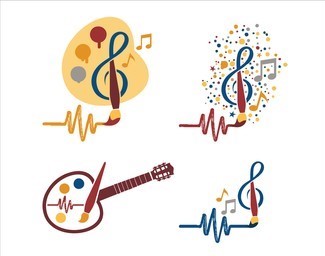Is Fine Arts A Good Career Option?
In the fiercely competitive environment, opportunities like fine arts are seemingly rising very rapidly. This is happening in various business areas, related explicitly to the fine arts knowledge domain and its application. Today, several aspiring professionals are seriously considering fine arts as a career option due to the emergence of many different avenues of its application domain. A fine arts qualification tends to prepare you for a broader range of arts and related area jobs. There is a lot of scope to excel in this field and obtain excellent prospects of growth. This is one field of study that does not limit you to specific work areas.
The only thing to remember is if you are applying for any fine arts-related position overseas or in a country other than your home country. Then, it will help to seek assistance on the new nation’s laws and policies from Total Law immigration. There are many jobs available across the world in this sector.
However, when considering a job in another country (and if your family is going to join you), you must consult and seek specialist assistance and advice on immigration spouse visa from the experts. Moving to another country is not always straightforward. There are the policies and the laws of the land you must be wary of. Without this, taking your family with you could be difficult.
What Are Some Career Options To Consider For Fine Arts?
The options available as a fine arts qualified graduate can be many. After completing a fine arts-related graduation, you could choose to work in a creative field across all domains of the industry. Besides this, you could also work as a freelancer in different areas, whether arts & crafts, fashion designing, videography or films, textile designing & clothing, photography, television and many more.
Academia:
You could also consider academia, for which you may need to obtain certain specific post-graduation speciality qualifications. As a fine arts graduate, you also have the opportunity to apply for mainstream graduate employment and training. Those qualified in the areas of the fine arts are considered to be knowledgeable in producing artwork for media and public relations.
There is a lot of scope in fine arts, and career options for growth are pretty good. You can earn a lot of merit and respect in your professional career. The earning potential is also pretty high.
Design:
While it is widely thought that getting a suitable job in this sector is not always easy, it appears to be similar to any other area of work. This line of profession offers the possibility of availing short-term assignments, which can help you tide over specific dry-patch periods in your career. At the same time, such short-term projects also help you gain expertise, earn some money, and become established.
You could also design, create, produce and present your work. Alternatively, you can diversify into other speciality areas through focused courses in graphic designing, teaching, portfolio management, and the like. This will surely help you secure several job openings to support your career.
Mainstream Options:
There is also the mainstream range of jobs in different industries like banking, insurance, media. You could look at a long list of possible professional growth areas like :
- Designing
- Advertising Art direction
- Event Management
- Photography
- Multimedia Programming
- Artistry and Painting
- Fashion Designing
- Interior Designing
- Fashion Book Illustration
and many more such professional roles requiring specific specialities.
Depending on how you want to grow your career through a fine arts qualification and speciality area, it will be for you to first start by building a creatively designed portfolio of your abilities and focus areas. This you could begin doing even while doing your undergraduate study. This portfolio should highlight your creative ideas as applied in the course work rather than just the case study of your coursework. Participate in competitions, presentations, exhibitions and display your work.
This way, you can get your abilities showcased and known. As in any other field, ensure that your networking and referral-connect development is well managed. You might also benefit from doing some pro-bono voluntary work at the community level, especially on local art initiatives.
Which Essential Soft and Transferable Skills are Needed?
Always keep in mind that most employers value your transferable skills. A few of such transferable skills could include your:
- Ability to develop and share ideas while working as part of a creative team
- Innovative ability and analytical skills
- Problem-solving methods
- Communication skills
- Ability to treat work criticism positively and objectively for improvement
- Transparency and ethical behaviour
To become a job aspirant in fine arts in the international job market, you must understand that fine arts have endless possibilities as a professional career. You need to focus on the exact area of expertise with which you want to be associated and then apply only to companies with a suitable matching position that befits your area of specialisation.

